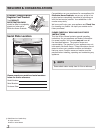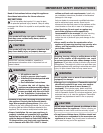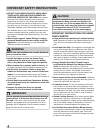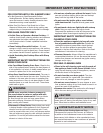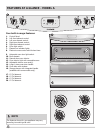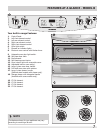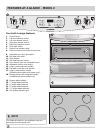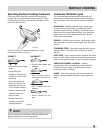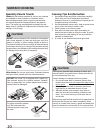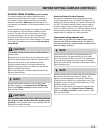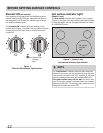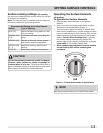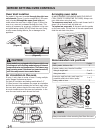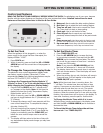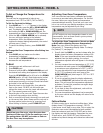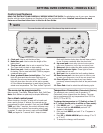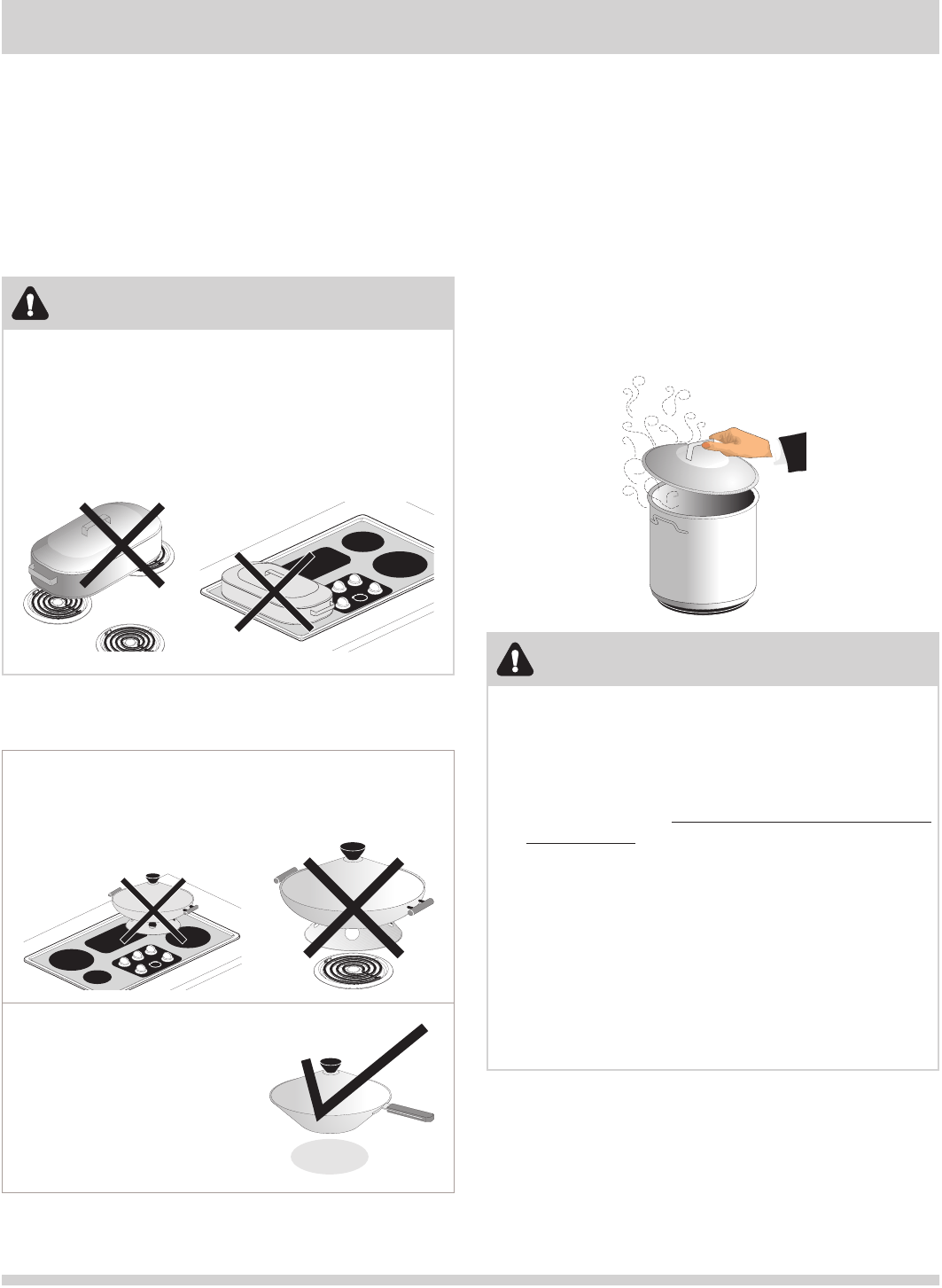
10
SURFACE COOKING
SpecialtyPans&Trivets
Woks
with at bottoms suitable for use on your cooktop
are available in most cookshop or hardware stores.
Round-bottomed woks (with a support ring that does
not extend beyond the heating element) may also be
used. The metal ring was designed to support the wok
safely when it is lled with large amounts of liquids (soup
making) or fat (frying).
DO NOT use a wok if it is equipped with a metal ring
that extends beyond the surface element. Because
this ring traps heat, the surface element and cooktop
surface could be damaged.
For glass smoothtop models,
only at bottomed woks
(without support rings) may
be used.
Wiretrivets:
Do not use wire trivets. Cookware bottoms
must be in direct contact with the surface elements.
CAUTION
DO NOT use two elements (if the cooktop is not equipped
with bridge element) to heat one large pan such as a
roaster or griddle, or allow cooking utensils to boil dry.
The bottom surface of the pan in either of these situations
could cause discoloring or crazing of the porcelain enamel
range surface, and damage to the surface elements and/
or damage to the drip pans (if equipped).
CAUTION
Canning can generate large amounts of steam. Use
extreme caution to prevent burns. Always raise the lid
to vent steam away from you.
Prevent damage to cooktop and burner grates:
1. Do not use water bath or pressure canners that
extend more than one inch beyond the edge of the
burner grate.
2. Do not leave water bath or pressure canners on
high heat for an extended amount of time.
3. Alternate surface units between each batch to
allow the units and surrounding surfaces to cool
down. Try to avoid canning on the same burner
unit all day.
Safe canning requires that harmful micro-organisms are
destroyed and the jars are sealed completely. When
canning in a water bath canner, a gentle but steady boil
must be maintained continuously for the required time.
CanningTips&Information
1. Use tested recipes and follow instructions carefully.
Check with your local Cooperative Agricultural
Extension Service or a manufacturer of glass jars for
the latest canning information.
2. Use at-bottomed canners only. Heat is spread more
evenly when the bottom surface is at.
3. Center canner on the burner grate.
4. Start with hot water and a high heat setting to
reduce the time it takes to bring the water to a boil;
then reduce the heat setting as low as possible to
maintain a constant boil.
5. It is best to can small amounts and light loads.



